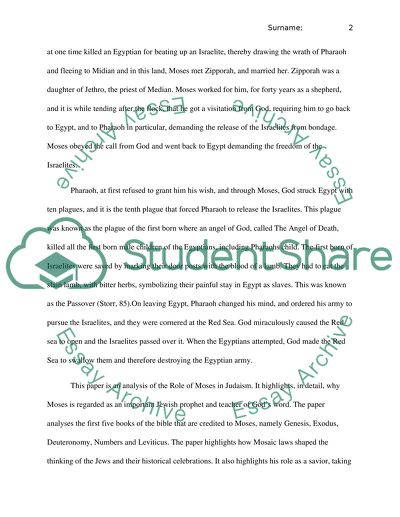Cite this document
(“Role of Moses in Judaism Research Paper Example | Topics and Well Written Essays - 2250 words”, n.d.)
Retrieved from https://studentshare.org/religion-and-theology/1449724-why-was-moses-one-of-the-most-important-prophets
Retrieved from https://studentshare.org/religion-and-theology/1449724-why-was-moses-one-of-the-most-important-prophets
(Role of Moses in Judaism Research Paper Example | Topics and Well Written Essays - 2250 Words)
https://studentshare.org/religion-and-theology/1449724-why-was-moses-one-of-the-most-important-prophets.
https://studentshare.org/religion-and-theology/1449724-why-was-moses-one-of-the-most-important-prophets.
“Role of Moses in Judaism Research Paper Example | Topics and Well Written Essays - 2250 Words”, n.d. https://studentshare.org/religion-and-theology/1449724-why-was-moses-one-of-the-most-important-prophets.


